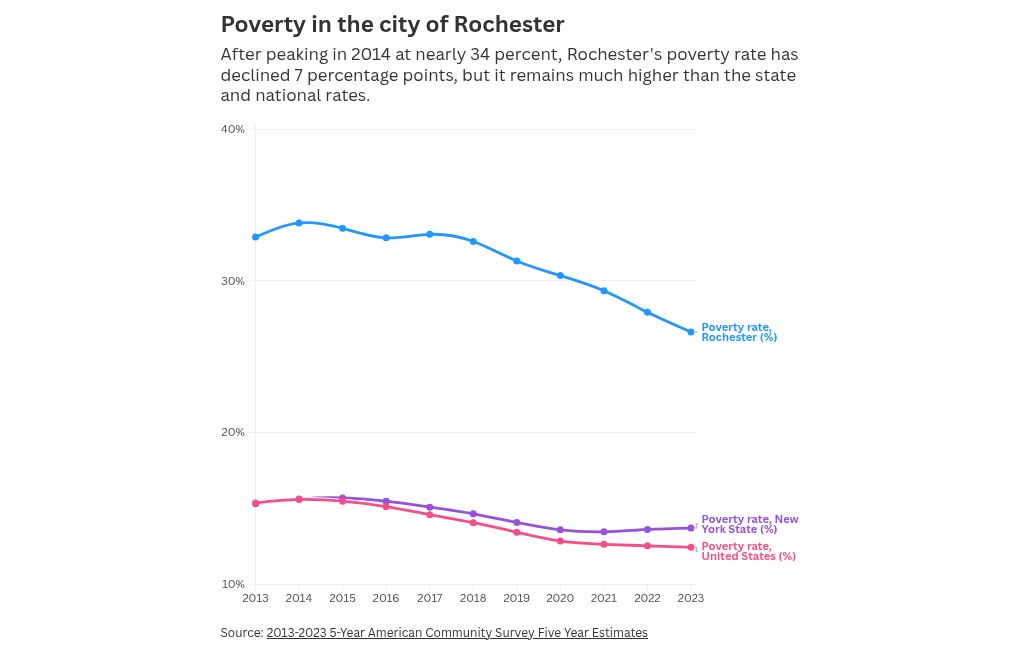Citizen Action of New York, a grassroots political organization, has established an Economic Justice Committee in Rochester with the goal of addressing systemic poverty and economic inequality in the city.
According to 2023 five-year estimates from the U.S. Census, more than 25% of Rochester’s residents live below the federal poverty line, with nearly half of those individuals classified as living in severe poverty (below 50% of the poverty line). While this rate is more than double the national average, it has decreased from a peak of nearly 34% in 2014 and is now at its lowest level in over a decade.
A report by City Council Vice President LaShay Harris indicates that Rochester’s child poverty rate was 42% in 2022, more than double the state and national averages. The report concludes, and the committee agrees, that poverty is ultimately a policy choice that can be eliminated through targeted action.
Led by activist Jalil Muntaqim, the committee meets weekly to develop action plans. Current priorities include:
• Advocating for City Council to adopt an ordinance that calculates affordable housing costs based on local median income rather than the area median income defined by the U.S. Department of Housing and Urban Development;
• Expanding funding and access to housing vouchers for low-income renters and first-time homeowners;
• Pushing for a minimum wage of $22 to $25 per hour;
• Establishing a public bank in Rochester that would reinvest local funds into low-income communities and small businesses.
“Our goal is to create tangible, material, substantial, and institutional change,” says Muntaqim. “That’s the only way we can make things really happen here in Rochester.”
The committee distinguishes itself from other advocacy groups by emphasizing community leadership and engagement. Rather than merely including community members in discussions, the committee prioritizes placing them in leadership positions to ensure that those most affected by poverty have a direct role in shaping solutions.
At a 2024 forum on the intersectionality of poverty, Muntaqim and other speakers discussed how different individuals may share similar experiences of poverty despite varying circumstances. The committee believes that building a unified movement is essential to creating lasting change.
While the group reports having support from members of the City Council, its primary focus remains on strengthening community ties. Committee members envision a future Rochester where communities are thriving rather than merely surviving, where leaders both listen and are heard, and where people can enjoy the fruits of their labor.
